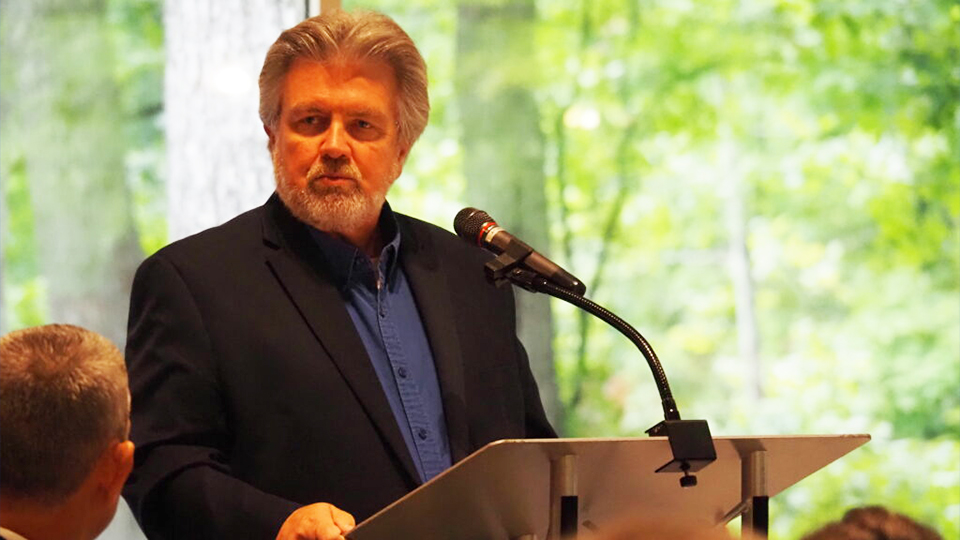Multi-agency cooperative to triple Indiana’s wildlife research capacity
Subscriber Benefit
As a subscriber you can listen to articles at work, in the car, or while you work out. Subscribe Now
Purdue University will host the country’s next — but Indiana’s first — wildlife-focused cooperative research unit, which will tackle the state’s natural resource management needs.
“When I went on my first hunting and fishing trips as a young boy growing up in southern Indiana, the world was a different place,” Indiana Department of Natural Resources (DNR) Director Dan Bortner said at a Thursday announcement.
“Today, as I get out and pursue squirrel hunts with my son, our society faces new challenges: urbanization, demographic shifts, wildlife and human disease, invasive species and questions on sustainable funding,” he said.
The initiative will bring Purdue and DNR together with the U.S. Geological Survey, the U.S. Fish and Wildlife Service and the Wildlife Management Institute — in what Bortner said would triple Indiana’s current 10 wildlife health researchers.
Decades of ‘badgering’
The nation’s first such cooperative was established in 1935 at Iowa State University. The program’s grown to 43 units in 41 states, with Indiana the latest.
Why the delay?
“I have waited 48 years for this day,” said Lowell Baier, an attorney, conservationist and historian who led President George H.W. Bush’s wildlife conservation agenda.
The Remington native, who grew up on a farm, recounted decades of political resistance to expanding the program, and his corresponding decades of “badgering and lobbying.”
“I can be a pest to Washington when I need to be,” Baier said.
And he thanked U.S. Sen. Mike Braun of Indiana for his support in boosting the overall program’s budget — by nearly $1.4 million in fiscal year 2023 — to finance Indiana’s cooperative.
Braun attended and spoke at the event.
Actionable science
The new entity’s research priorities will likely involve aquatic species conservation in the Ohio and Wabash rivers, non-game wildlife conservation, and wildlife disease, said U.S. Geological Survey Director David Applegate.
That includes chronic wasting disease, he said, which has decimated deer and other animal populations across North America — troubling conservationists and hunters alike.
As part of the research unit, two to five federal, doctorate-level scientists will serve as faculty members at Purdue: conducting research, teaching courses, supervising students and offering workshops, according to Applegate. The scientists will work with graduate students, postdoctoral fellows and administrative specialists.
That means the cooperative is also a talent-builder.
“It helps us cultivate the next generation of scientists and resource managers by getting graduate research students involved in real-world research challenges,” Applegate said.
He anticipated that, with the formal agreement in place, the scientists would be hired in the next year or two. Next, he said, the partners involved would work with the community to finalize research priorities.
It may take several years for Indiana’s cooperative to produce its first research products, but nationwide, such research units have been prolific.
They’re working on more than 1,000 research projects now, and generate more than 250 scientific publications a year, according to the U.S. Geological Survey’s cooperative research unit page.
Those involved with Indiana’s efforts hope that — by channeling federal government, state government, university and nonprofit resources — researchers will progress on the state’s most urgent natural resource management needs.
And that could have real impacts for Hoosiers who love the outdoors.
“Sportswomen and men of Indiana … are folks whose hearts speed up when they hear a turkey gobble or an elk bugle, or when they feel a fish strike their flyer,” said John Tomke, former president of waterfowl conservation group Ducks Unlimited. “They walk quietly in the forest — anticipating what they’ll see around the next bend.”
“They care about helping wildlife and healthy habitats. And they’re committed to ensuring that future generations of Americans can enjoy that as they have,” Tomke said.
The Indiana Capital Chronicle is an independent, not-for-profit news organization that covers state government, policy and elections.
